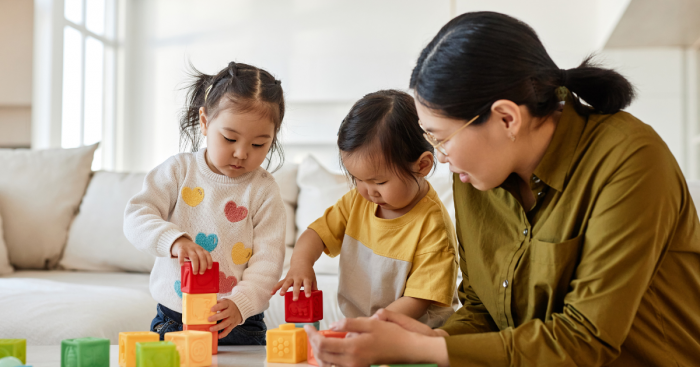In today’s world when children are deluged with non-stop information, it is important that these young and impressionable minds are equipped with critical thinking skills.
Critical thinking is actually a necessary life skill that all parents should teach their children because it will help them understand how things work in the real world. Critical thinking comprises of analysis, comparison, contrast, using logic, determining what is right or wrong, what is of value, what is not and generally being able to separate the wheat from the chaff so that they can arrive at the right decisions in life.
It also encourages them to exercise their cognitive “muscle” which ultimately leads to better performance academically, professionally and socially as they grow into thinking and matured adults.
What is Critical Thinking?

Critical thinking is a set of cognitive skills that builds the ability to examine a situation, belief or problem, evaluate its correctness using logical reasoning and then come up with possible solutions. It is also being able to list different possible causes or decide whether or not you should believe a piece of information. In the age of fake news, misinformation, scare mongering and online scamming, subjecting information to critical scrutiny before accepting anything at face value can save everyone from being taken for a ride. It can even enable you to be more creative and innovative. The late John Dewey − American philosopher, psychologist and educator described critical thinking as “reflective thinking.”
For children, its about helping them develop reasoning skills, encouraging them to be curious, to ask questions and to take an active role in the world around them. Besides being able to think independently and gaining problem-solving skills for the long run, this kind of mental exercise will contribute to their brain and cognitive development resulting in better emotional regulation, faster social maturity, fewer behavioral problems, better communication skills and higher academic success.
10 Ways to Raise Critical Thinkers

Here are some ways parents can teach their children to be critical thinkers:
1: Start Explaining Everything from Very Early On
It does not matter what age your child might be. So long as they are able to speak, express themselves and understand what you are saying, they can start to learn to think critically. Whenever they say something, ask questions or are being curious about anything in their surroundings, don’t brush them off just because they are very young or assume they wouldn’t understand if you tried to explain.
Instead, take the time to talk to them. You can build on everyday interactions to nurture their interests, evaluate information they may have heard from a friend or had seen somewhere, learn from the example of others through books or the internet or a real life person, and encourage problem-solving by brainstorming together to find solutions to whatever issues that may crop up in daily life.
2: Be a Good Role Model
Sometimes the best way to teach your child how to be a critical thinker is to let him copy you. Children are natural copiers. They copy what their parents do and say. Be sure you are modelling critical thinking in your own life. Show your children you always research things that sound dubious, and you always verbalize your thinking skills so he can imitate how your mind works.
3: Do Not Demand Blind Obedience
All parents want their children to be good and well-behaved but never demand that your child obeys you just because, “I said so!”. Demanding blind obedience is the fastest way to discourage critical thinking development because it shuts down all opportunities for communication, thinking and questions. This kind of parenting is called Power Assertion and Punishment. The child is forced into total compliance without understanding why and if done constantly from the toddler stage, this fear-based shut-down style of parenting will eventually erode his chances of ever developing his own sense of self and independence. The end result will see the child becoming unhappy, frustrated, resentful and even rebellious once he becomes old enough to assert his need for independence and a separate identity.
Of course, all parents want their children to be “good kids” but to get good behaviour out of genuine cooperation, you need to explain why you want him to do what you ask him to do. This way, the child gets to weigh your request, exercise his logical reasoning skills, maybe speak out “his side of the story” or share his viewpoint and see a clearer picture of why he should do what you ask him to do.
Perhaps he had just thrown his food on the floor out of a fit of temper. Children below the age of five often throw tantrums when they are upset or want to express their frustration. It’s a normal part of growing up. Don’t get angry and react to the tantrum with punishment. Instead, calm yourself down and reason with him as to why he shouldn’t do that. Chances are, when allowed to ruminate over what he had done, and reflect on where he had gone wrong, he will pick up the food, apologise and decide never to repeat that behaviour again.
This method of talking, using reasoning and logical thinking to explain the right behaviour to children is called practising Inductive Discipline.
By using Inductive Discipline in parenting, children often have fewer behavioural problems, better emotional regulation, higher academic success, and more critical thinking skills.
4: Play with Your Child
Believe it or not − children learn a lot during play. Play improves their cognitive, physical, social, emotional, language as well as problem solving and strategy skills while boosting independent thinking. It also helps build relationships with others.
So get in there and play with them. Provide plenty of opportunities for play with building blocks, board games or acting out roles with friends. Every time you play with your children you are bonding with them, having fun, talking, laughing, discussing and strategising the game, learning by trial and error and having a great time together. In fact, if you regularly play with your child from a very young age, you are setting the foundation for critical thinking.
5: Teach them to Solve Problems

One way to teach children to think critically is to teach them how to solve problems. There are many ways to do this. For example, if your child is younger, you might want to challenge him with a simple game of moving an object from one side of the room to the other without touching it with his hands. Then ask him to brainstorm five different ways to solve the problem. He could use his elbows to move the object, perhaps he could wear gloves and so on. The both of you could pick one of the answers and try it out. This could provide the both of you some quality one-on-one time and also show your child that there are multiple ways to solve a problem.
If you want to turn problem solving into games, and if your child is very young, you could try large-piece jigsaw puzzles, sorting, matching and stacking games, simple counting games and so on.
For older children, you can try more complicated jigsaw puzzles, logic puzzles, Sudoku and Scrabble, or ask them riddles and solve brain teasers together.
Additionally, you could try asking them for suggestions to solve real life problems. For example, you could ask them to come up with a dinner menu based on the available ingredients in your kitchen or how to harvest a fruit that has ripened very high up in your fruit tree.
6: Don’t Intervene Immediately
When your child is stumped by a problem or is challenged in some way, don’t jump in immediately to do the task or solve the problem for him. Children need challenges in order to grow. Say, he can’t figure out how to twist a bottle cap to close the bottle top or which shoe to put on which foot, don’t immediately do it for him or show him the way but wait and watch until he works it out himself.
Giving your child ample time to think, to attempt a task or come up with a response to a question is critical. This gives your child a chance to reflect on his response, perhaps refine his answer rather than responding with their first gut reaction.
7: Help Children Develop Hypothesis
A hypothesis is a scientific term for an educated guess based on the current information known. Your child needs to consider what is known and predict what might happen next, then test out to see if the hypothesis was correct.
When you are reading your child a bedtime story or when your child is reading a book, ask him: “What do you think will happen next?” After reading, you can evaluate the accuracy of the prediction and determine why it was or wasn’t right.
Or, while colouring a picture, ask: “Do you think your picture would look different if we coloured it with markers instead of crayons?”
Or, “What colour do you think will come out if we mix red and white paint together?” Test his prediction and see.
Helping children form hypothesis during their daily routines or during play will definitely help him develop critical thinking skills that will stand them in good stead when they tackle Math and Science in school later on.
8: Foster Curiosity, Encourage Questions

Asking questions is the basis of critical thinking. Children are naturally curious about the world they live in and will ask all kinds of questions such as, “Why is the sky blue?”, “Why do we have five fingers on each hand?” Their questions can be exhausting to answer sometimes but it will be worth everybody’s while when you notice them learning to articulate themselves, observing and taking a keen interest in the world around them.
If those questions are not forthcoming, you could take the lead in prompting them.
For example, you could ask, “How was school today?” and then follow with, “What did you learn at Science class with the new teacher?” Or, “Did you like the sandwich I made you for lunch?” and then, “Why did you like it?’
For older children, you could ask, “How do you feel about recycling?” Or, “What would you do if someone pushed you at school?” You could talk about bullying − a very real life issue that is happening in schools today − or fashion, or their ambition when they grow up and why they want to be in that profession.
Ask open-ended questions to broaden the child’s thinking processes and develop his speech. Examples include: “What ideas do you have to complete this project?”, “How did you make these cupcakes?”, “What do you think of the movie we just saw”, or “What do you like about going to the park?”
Additionally you could model this type of questioning behaviour by allowing your child to see you question things as well.
9: Practice Making Decisions
Part of learning to be a critical thinker involves making decisions. One way you can get your child to think critically is to allow him to make choices. For example, let him choose what he wants to wear to go to a birthday party or have a say in his own wardrobe decisions before you buy the clothes. You might think the striped green shirt will look wonderful on him but he might not agree with you. Allow him to tell you why he agrees or disagrees with that piece of clothing before you purchase it.
You could also give him an allowance and allow him to make choices about what he wants to do with the money.
Letting children make small decisions over what they want lets them feel like they have some power and control over what they do. Not everything needs to be planned for him and it is a step towards his independence. These scenarios require your child to think critically, and weigh the potential consequences before they make a decision.
10: Allow them to Make Mistakes
The process of learning comes with making mistakes and failure so learning the lessons that come with making these mistakes is a critical life skill. Children should be encouraged to try new things and to make mistakes in the process. This process will help them learn how to problem-solve which will help them become more resilient and confident in their abilities while developing new skills as they grow up.
Failure at doing something allows children to see different perspectives and consider other solutions they may not have thought of before to correct the mistake.Alongside honing their problem-solving and critical thinking skills, learning from experience, picking themselves up after failing will lead them to become more creative and build character.
Conclusion

Building your child’s critical thinking skills doesn’t happen overnight. It starts from as soon as he understands language and the conversations grow from there. At the end of the day, we as parents want to raise children who will become thinking and contributing members of society. Your efforts in helping them evaluate matters, broaden their mindsets, think deeper, and grasp the basic principles of life will lay the foundation for their future success in life.





